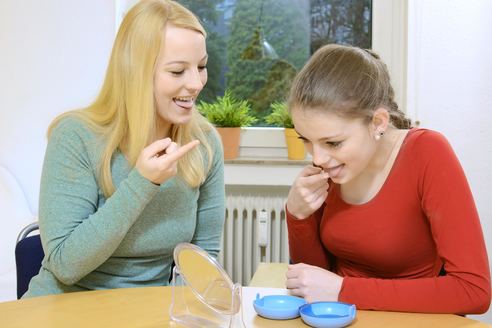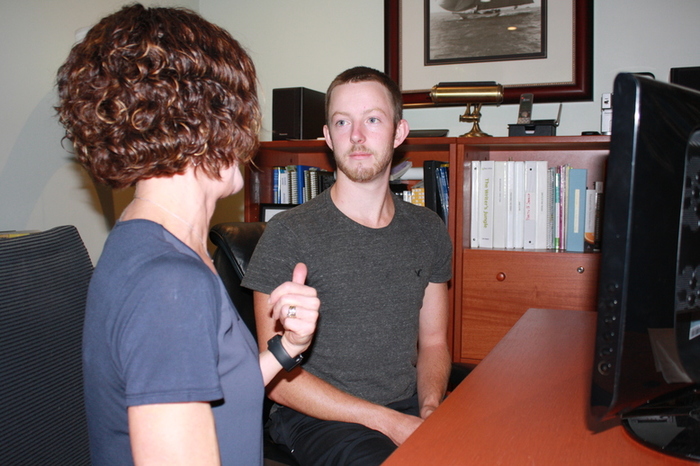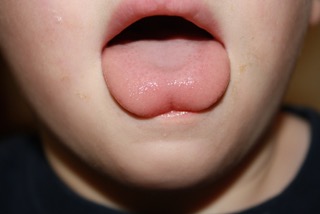
Triangle Speech and Orofacial Myology
Welcome to Triangle Speech & Orofacial Myology. We are glad you are exploring our site and hope you find all the information you need to determine if this is the right practice to meet your needs or those of your child. Our goal is to find the best treatment approach to meet the concerns of each individual. At Triangle Speech & Orofacial Myology, we will complete a thorough evaluation and set up a treatment plan for therapy sessions as well as a home plan to ensure the quickest progress possible.
Services

Orofacial Myology
Ms. Felton is a certified orofacial myologist, a treatment method designed for children and adults. Orofacial Myology is the assessment and treatment of abnormal patterns of use of the mouth and face and how these impact dentition, speech, and eating/swallowing.
An Orofacial Myologist can help with
- Tongue thrusting during speech/swallowing
- Digit sucking habits
- Poor jaw stability
- Speech skills
- Tongue & Lip tie
- Orofacial muscle weakness
- Mouth breathing
An evaluation will be completed and daily homework provided. This treatment helps shorten the child's time in therapy. Click here to download a referal

Talk Tools Oral Placement Therapy
Ms. Felton has completed through Level 3 training in Talk Tools Oral Placement Therapy, an oral motor approach that addresses feeding and speech disorders. The approach utilizes the auditory and visual stimuli while adding the tactile and proprioceptive sensory systems.
It allows the patient to not only hear and see the cues for speech, but to feel them as well. In addition, this technique is used to build strength in the orofacial muscles to improve speech clarity and to improve feeding. An OPT evaluation examines your child's current functional level and sets up a treatment plan that includes daily homework for the patient with the help of his family and a plan for therapy. If the child is not being followed in this clinic, updated assessments may be completed monthly or quarterly.

Buteyko Breathing Method
Ms. Felton is trained in the Buteyko Breathing Method, which was developed as a drug free way to reverse dysfunctional breathing, such as in asthma, COPD, or sleep apnea. Dysfunctional breathing patterns can lead to several chronic health problems and also impact how an individual's teeth and facial structures develop. The Buteyko Breathing Technique has been tested and has been found to be effective and safe.
Dysfunctional breathing patterns that can be treated with Buteyko include the following:
- asthma
- adenoid and tonsil inflammation
- snoring
- nasal polyps
- upper airway obstruction
- COPD
This technique may be used in conjunction with Orofacial Myology Therapy for the best results with orthodontics.

Feeding
Feeding disorders can occur for many different reasons but usually begin due to some disruption in the typical feeding development process. Some problems that can interfere with appropriate feeding advancement include reflux, prematurity, sensory problems, anatomic differences, or oral motor challenges. Behavioral problems often develop out of these.
A Feeding evaluation will identify the areas the child is struggling with and a plan will be created to address these specific needs. Ms. Felton uses an approach to feeding disorders that adresses the underlying problems that are impacting the child’s feeding while working with the family on mealtime practices that may be impeding the child’s progress with a goal of making mealtimes a pleasurable experience for the whole family.

Tongue & Lip Tie
A baby with a short lingual frenulum, otherwise known as tongue tie, may have difficulty with nursing, resulting in prolonged feeding, falling asleep at the breast, difficulty gaining weight and/or significant breast pain for the mother. It may also make it difficult for an infant to move food around in the mouth, causing gagging or vomiting.
Ms. Felton is trained in the Assessment Tool for Lingual Frenulum Function (ATLFF), which was developed by Alison Hazelbaker and is the only evidence-based tongue tie screening tool for infants 37 weeks gestation to 6-months of age. Older children may also have tongue or lip ties that have not been addressed and may be causing problems with speech and/or feeding.

Sucking Habits
Thumb, digit, or pacifier sucking is common in infancy and early childhood but is a habit that should be eliminated before a child gets his or her adult teeth. These sucking patterns can result in changes to the palate and the dentition, often leading to an open bite or other malocclusions.
The clinician will meet with the child and determine his or her readiness to eliminate the habit and work with him or her over a ten day period. This program helps the child to take the lead role in this process, empowering him or her and giving him or her a sense of accomplishment.

Language Related Learning Challenges
Children with language disorders often struggle academically. This may be because the child's processing speed is slow, he does not understand or use language structures, or he has a limited vocabulary.
When a child's processing is slow, it is often difficult for him to keep up with the lecture and he consequently misses information. The child may have auditory working memory limitations that make it challenging to take notes or he may simply not understand complex language well. An evaluation can help to identify the specific areas of need for the child with recommendations for therapy to help improve these skills and classroom accommodations to enhance his learning experience. Ms. Felton worked on Auditory Processing Teams at Duke and NCEENT and evaluated and treated many children with language related learning challenges.

PROMPT
Ms. Felton has been trained in PROMPT (Prompts for Restructuring Oral Muscular Phonetic Targets), a technique that incorporates neuromotor principles, kinesthetic and proprioceptive information, as well as auditory and visual information to provide feedback to the speech system, in order for an individual to produce clear, functional speech.
The PROMPT clinician provides input to all areas of oral motor system by using touch, pressure, specific placements, as well as creating auditory and visual awareness. This helps an individual achieve controlled, functional speech.
About

Elizabeth Diane Felton
E. Diane Felton, MA/CCC-SLP, COM, QOM is a clinical speech language pathologist with more than 25 years experience. She is board certified by the American Speech Language Hearing Association and is licensed by the North Carolina Board of Examiners for Speech Language Pathologists and Audiologists. Ms. Felton was on the faculty at Duke University Medical Center for 14 years, working with a wide variety of medically complex patients. She then worked at North Carolina Eye, Ear, Nose, & Throat as Director of Speech Pathology for 10 years. Ms. Felton is a Certified Orofacial Myologist and Buteyko Breathing Educator. She specializes in pediatric feeding, swallowing, auditory processing, language, apraxia of speech, voice, and articulation. Ms. Felton has also received special training in Talk Tools Oral Placement Therapy, PROMPT, and Lessac-Madsen Resonant Voice Therapy.